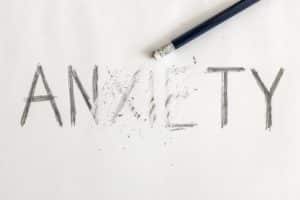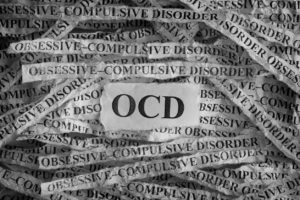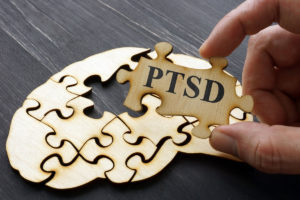When someone suffers from one of the many types of anxiety, it can make living an average life challenging. There are six types of anxiety disorders. While each of these disorders is treated differently, many treatment options overlap. What is the Difference Between Anxiety and Anxiety Disorder? People experience anxiety and stress during day-to-day life. In typical amounts, some anxiety is normal. However, when someone’s anxiety worsens over time and refuses to go away, they may suffer from an anxiety… Continue Reading
Warning Signs of Mental Health Issues in Older Adults
Mental health issues in older adults can happen for a variety of reasons. By learning to recognize the signs and symptoms, you can take the first step in getting the help you need. Most Common Mental Health Issues in Older Adults While the causes and symptoms may vary in older adults, many mental health conditions in older adults are the same as those in younger adults. Statistically, you will likely develop one of the following mental health disorders. Depression Because… Continue Reading
The Surprising Benefits of Electroconvulsive Therapy
It is time for the misinformation about Electroconvulsive Therapy to stop hindering the successful treatment of debilitating disorders such as severe depression and schizophrenia. The benefits of ECT often outweigh the risks, and the procedure can now be conducted as a safe and comfortable outpatient treatment. The Origins of ECT In 1934, at the University of Budapest, neurologist Ladislas von Meduna observed that after schizophrenic patients suffered seizures, symptoms, including hallucinations, delusions, and rambling speech, were reduced or completely gone. From this observation,… Continue Reading
Is OCD An Anxiety Disorder?
Obsessive-compulsive disorder (OCD) is a common diagnosis. It typically involves unwanted thoughts and repetitive behaviors. While there are similarities between OCD and anxiety, OCD is a separate diagnosis. Is OCD an Anxiety Disorder? In the past, OCD was officially classified as an anxiety disorder. Now, it is considered a separate disorder. Today, it is classified under Obsessive Compulsive and Related Disorders. The distinction between OCD and anxiety matters because patients need to be diagnosed accurately. You can get accurate treatments… Continue Reading
Warning Signs of a Mental Health Crisis and Strategies for De-escalation
Between 32 and 50 percent of people will suffer from a mental health disorder at some point in their lifetime. Everyday stressors can end up triggering mental health problems in children and adults. If a mental health crisis occurs, there are a few things loved ones can do to help. What is a Mental Health Crisis? A mental health crisis is a situation where someone’s behavior poses a risk to themselves or someone else. This term may also refer to times when… Continue Reading
Impact of COVID-19 on Anxiety: Situational Anxiety vs Anxiety Disorder
The years 2020 and 2021 have been ones we will never forget, as so many lives were turned upside down with the mention of a new virus: COVID-19. The changes that occurred brought a new way of life where you couldn’t watch the news, get on social media sites, or drive down the street without seeing constant reminders of the danger around us. The ever-present virus has caused a new phenomenon of COVID-19 anxiety. There has been so much information… Continue Reading
Healthy Coping Skills for PTSD
It is common to experience intense responses, including stress, anxiety, flashbacks, or insomnia after experiencing traumatic events. There are many types of incidents that could cause PTSD, including car accidents with injuries, physical and emotional abuse, or observing a violent situation. These symptoms can be overwhelming and finding tools to help in the healing process is crucial. How a person uses PTSD coping skills can determine if they have long-term symptoms or a short period of recovery. There are numerous… Continue Reading
Self-Harm Doesn’t Always Look the Same: When to Seek Help
Self-harm is often kept secret and may be more prevalent than you think, especially in young adults or adolescents. This type of behavior is usually not suicidal but rather a way of dealing with emotional pain or anger. It provides relief for a short period of time, followed by bouts of guilt or shame. This purposeful harming of one’s body usually occurs when people have experienced trauma, neglect, or abuse. It is important to understand this affliction is not characterized… Continue Reading
Schizophrenia vs Bipolar Disorder: How to Get the Support You Need
Schizophrenia and bipolar disorder are two chronic mental health conditions and can often be confused with each other. It is important to understand they have different diagnoses, and treatment is unique for each one, even with their similarities. There are some symptoms that may cause confusion, so it’s vital to understand the difference between the two. Schizophrenia causes more severe symptoms than bipolar disorder, and one of the first symptoms is social isolation with noticeable hallucinations or delusions. No one… Continue Reading
Types of Substance Abuse and Strategies to Overcome Addiction
Many of us use substances to relax, unwind, and enjoy ourselves. Though there are also those who use them for other reasons, including escaping the stresses of life, masking emotional pain, or eliminating chronic anxiety. But the comfort provided by drugs, alcohol, or other substances is often nothing more than a band-aid for deeper mental health disorders that need more hands-on treatment. After the effects of a substance wears off, the returning pain, anxiety, or stress can be overwhelming. The… Continue Reading
- 1
- 2
- 3
- 4
- Next Page »















